#friedrich paulus
Explore tagged Tumblr posts
Text
Scenario from a Friedrich Paulus book
Бланк Александр. Вторая жизнь фельдмаршала Паулюса Read with Google translate, accuracy not guaranteed.
· Walter, but Sie
An unpleasant conversation at RH’s office
“He was the most terrible figure among our statesmen,” Field Marshal Paulus felt it necessary to share his opinion. “Cruel, cunning, treacherous. I once ‘had the honor’ of being invited to talk to him.” “As you understand,” Paulus emphasized, “a summons to Heydrich was not an ordinary event even for an OKH general. And I went to see him very worried. ......The Obergruppenführer inquired about my wife's health," Paulus continued. "Apparently he knew about her from his wife: Helena Constanze and Lina Heydrich belonged to some kind of charitable society. "Your wife, General, is the object of constant attention from our fashionistas - they say her outfits are as magnificent as they are expensive… Where do you get so much money, my dear?" Heydrich joked. "I, for one, don't have any." Then he wiped the smile off his face. "Our Aryan women are now choosing a strict style of dress - there is a war and the fatherland is fighting," he noted. This was a clear hint at the non-German origin of Helena Constanze - "our Aryan women"… "But I," Heydrich finally dropped the joking tone, "of course, did not invite you to talk about the outfits of our ladies. "We are talking about your future trip to Bucharest and Budapest… We would like to ask you about something…" The Field Marshal fell silent. There was no continuation of the story.
Paulus, without any apparent connection to what was said, remarked: "Someone said it right: everyone imagines others in their own image and likeness. This is a very true thought."
The Field Marshal did not mention Heydrich again: the conversation remained unfinished. Only some time later, Paulus's close friend, his former first adjutant Wilhelm Adam, finished the story.
After talking about fashions and the modesty with which an Aryan woman should behave, Heydrich got down to business: "So, we have a favor to ask of you." He immediately picked up the telephone receiver and said quietly but rather insistently: "Schellenberg, please come to see me."
The head of the RSHA's foreign intelligence service immediately appeared and told Paulus in a peremptory tone: "Mr. General, we know that one of your relatives in Bucharest serves as the head of the cipher department of the Romanian Ministry of Foreign Affairs. We will call him Stefan. Another of your Romanian relatives - we will call her Rosita - married a communist who is in preventive detention. We also know that your third Romanian relative is married to a man who remained in Bolshevik Bessarabia. Finally, and this is the main thing, we know that you, Mr. General, are a true patriot and a loyal soldier of the Fuhrer… Schellenberg fell silent, brazenly examining Paulus's face. Most likely, he wanted to understand what impression he had managed to make on the young general. Apparently, the scout caught the confusion on his face and, considering the issue resolved, stated the main thing without any disguise. - So, in a few days you are going to Bucharest. We cannot guarantee that the Romanians are always honest and open with us. And if your relative Stefan could help us to verify this, we would highly appreciate such a service.
Paulus literally choked with anger. Without hiding his indignation, he asked Schellenberg again: - You wanted me to recruit Stefan for you? Did I understand your proposal correctly? - Well, why state delicate issues so simply, - Schellenberg said with feigned offense. - It's about strengthening the relationship of trust, nothing more. - No, thank you. I'm a soldier, Herr Colonel (Schellenberg then held the rank of SS Standartenführer, which was equivalent to a colonel in the army), and I'm used to speaking frankly, without any beating around the bush. I'm not suited to the role of recruiter of agents, I don't know how to steal other people's codes. My job is to fight, and if necessary, to die for the Fuehrer and the Fatherland.
And then Heydrich, who had been silent the whole time, intervened: - We are not forcing you to do anything, Herr General. Walter simply asked for a small favor. The reasons for your refusal are clear to us, we respect them. After all, you don't want to endanger a close relative of your wife.
And even at that moment Heydrich did not miss the opportunity to sting Paulus. He supplemented the statement he had just made about understanding his position regarding his relative with a clearly offensive phrase: “And such a generous man – after all, he manages the family accounts of the Rosetti family.”
Seeing Paulus’s face flush again, the owner of the office stood up and said conciliatorily: “Let’s forget about this conversation. Walter, you are free to go.”
· Rumors are everywhere
At the same time, there was a version among the officers of the General Staff that Heydrich sent men with sledgehammers to smash to pieces a marble tombstone over one of the half-abandoned graves in the Leipzig cemetery, where his grandmother with a non-Aryan name was supposedly buried."
RH 's paternal grandmother was Ernestine Wilhelmine Lindner, his maternal grandmother was Maria Antonie Mautsch(Slavic in origin, but not Jewish anyway).





14 notes
·
View notes
Photo

Battle of Stalingrad
The Battle of Stalingrad (now Volgograd, July 1942 to February 1943) was an attempt by Adolf Hitler (1889-1945) to control the USSR's access to the Caucasus oil fields. Fierce street-fighting by the Soviet Red Army saw the city withstand the attack until a massive counteroffensive was launched, which encircled Hitler's Sixth Army.
Considered a turning point of the German-Soviet War, Stalingrad resulted in the destruction of an entire army and the surrender of 91,000 troops, including field marshal Friedrich Paulus (1890-1957). One of the greatest victories of the USSR in the Second World War (1939-45), Hitler's armies never recovered and thereafter fought a defensive war of retreat.
The Campaign So Far
Adolf Hitler, the leader of Nazi Germany, had launched his attack on the USSR, Operation Barbarossa, in June 1941. Sweeping victories soon followed thanks to Blitzkrieg ('Lightning war') tactics, which combined air support with fast-moving armoured and infantry divisions advancing on narrow fronts. When it came to taking large cities, though, the invaders were less successful. The Battle of Moscow (October 1941 to January 1942) was won by the Soviet Red Army. The siege of Leningrad dragged on for years as that city held out, too. Stalingrad, in the south of the USSR, would prove an equally tough objective for the Axis armies to take.
Read More
⇒ Battle of Stalingrad
25 notes
·
View notes
Text

1942 11 Stalingrad, Junkers 87D Stuka - Mark Postlethwaite
The epic battle of Stalingrad, which ended in the annihilation of Germany's 6. Armee, is rightly seen by many as the turning point of the war in the east. Apart from an unfortunate minority, however, the men of the Stuka units that had accompanied General Friedrich von Paulus' troops during their advance on the city escaped the fate that befell a quarter of a million of their ground comrades. The Stukagruppen were withdrawn long before the struggle for Stalingrad reached its climax. Only a single Sonderstaffel (Special squadron) of Ju 87s continued to operate from within the Stalingrad pocket. Throughout its seven-week existence, this Staffe/was commanded by Leutnant Heinz Jungclaussen, the Kapitan of 6./StG 2 'lmmelmann'. Mark Postlethwaite's striking cover illustration captures Jungclaussen's winter-camouflaged 'Anton-Paula' as it commences its dive on a target near the 'Red October' iron works just to the north of the distinctive rail loop that was known to every German fighting in the city as the 'tennis racquet'. Jungclaussen went on to add another 800 Stuka missions to the 200 he had flown over Stalingrad before becoming an instructor in early 1944. He returned to operations in November of that year as a Schlacht pilot on the western front, flying Fw 190s as the Staffelkapitan of 3./SG 4, only to be killed in action against RAF Typhoons over the Rhine south of Koblenz on 26 December 1944
25 notes
·
View notes
Link
Stalingrado, 31 gennaio 1943 Il Feldmaresciallo Friedrich Paulus, Comandante in capo della 6ª Armata della Wehrmacht, si arrende all'Armata Rossa. Inizia qui la sconfitta del nazifascismo.
21 notes
·
View notes
Text

On February 2, 1943, Operation Ring ended wrapping up the battle of Stalingrad in the process capturing 25 Wehrmacht generals were captured, including Friedrich Paulus.
2 notes
·
View notes
Text
The Many World War II References in Thracia 776
At this point, it's largely known that several bosses encountered in Fire Emblem: Shadow Dragon were named after infamous military figures from World War II. Much less spoken of are the references to not only members of N*zi Germany, but important faces from this period around the globe. Do note that due to circumstances I've had to censor various keywords (though I'm sure I managed to miss some), so you have my apologies if this wasn't immediately accessible, or if the odd asterisk here and there is troublesome.
Starting with Chapter 1's Weismann (JP: ワイズマン; rōmaji: waizuman), tasked by Raydrik to capture Leif in Fiana. He likely takes his name from Chaim Weizmann, written in Japanese as ハイム・ヴァイツマン (rōmaji: haim vaitsuman) or カイム・ワイズマン (rōmaji: kaim waizuman). Weizmann was a Jewish biochemist from R*ssia, but went on to be the president of the World Zionist Organization, which sought to establish a homeland for the Jewish people in the borders of the Biblical Land of Israel. He would work alongside British Prime Minister Winston Churchill throughout both World Wars. When the State of Israel was formed in 1948 after conflicts with the Palestinians who call the land home, Weizmann would become the first Israeli president.
Tolman (JP: トルーマン; rōmaji: torūman) is the boss of Chapter 6, leading a battalion in Munster. He is named after United States President Harry Truman (ハリー・トルーマン; rōmaji: harī torūman), who took presidency after the passing of Franklin Roosevelt towards the end of World War II. Truman is best known for his authorization of the use of nuclear warheads on Japan.
Chapter 7's boss is named Eisenhau (JP: アイゼナウ; rōmaji: aizenau), rather obviously named after the subsequent president of the United States following Harry Truman, Dwight D. Eisenhower (ドワイト・D・アイゼンハワー; rōmaji: dowaito D aizenhawā). Before his presidency, Eisenhower held the role of Supreme Commander of the Allied Expeditionary Force in World War II, having planned out Operation Torch and Operation Overlord.
Lemay (or Rumaigh, depending on the translation), is a Thracian Wyvern Knight working with the Violdrake Bandits in Chapter 8. His Japanese name, ルーメイ (rōmaji: rūmei) comes from United States Air Force general Curtis LeMay (JP: カーチス・ルメイ; rōmaji: kāchisu rumei), who was involved in arranging the bombing tactics in the Pacific Theater of World War II, including Operation Starvation - dumping naval mines around major Japanese ports to cut off shipping - and the dropping of the atomic bombs on Hiroshima and Nagasaki.
Oltoph (JP: オルトフ; rōmaji: orutofu) is a bishop serving under Kempf encountered in Chapter 11x. He likely is named after Soviet Secret Police member Alexander Orlov (JP: アレクサンドル・オルロフ; rōmaji: arekusandoru orurofu). Orlov was given a major directing role over Soviet involvement in the Spanish Civil War, serving as a liaison to the Spanish Republican faction and weeding out any amongst them that thought to challenge Joseph St*lin and the Soviets. He would continue his policing duties during the Great Purge, arresting and executing those internally viewed as a threat to St*lin's reign. When Orlov’s own friends ended up in the state’s firing line, he abandoned the Soviet Union and brought his family to Canada, a threat of leaking many of the country’s illegal operatives protecting him. Strengthening this reference is how Oltoph, more or less sentenced to death to allow Kempf's escape, will dart for an escape tile after 30 turns.
Chapter 14's boss is a Baron of Friege named Paulus (JP: パウルス; rōmaji: paurusu), who is tasked with the capture of Tarrah. He is named after Friedrich Paulus (JP: フリードリヒ・パウルス; rōmaji: furīdorihi paurusu) a German field marshall best known for his role in the Battle of Stalingrad. In what would be Germany's last push to invade the Soviet Union, the R*ssian city of Stalingrad would be largely demolished and held by the Axis powers with little threat until winter's approach, when the Soviets took advantage of the Germans' lack of preparedness. The German front would be pushed further and further back until the remaining Sixth Army - the most highly decorated army of the Wehrmacht - was surrounded in the city. After a failed rescue attempt, the highest-ranked soldier remaining in the Sixth Army, Friedrich Paulus was promoted to the rank of field marshal over radio by Adolf H*tler himself. His orders were to either withstand the Soviets for an indefinite length of time or to take their own lives before capture. Nonetheless, Paulus would soon allow himself and his men to be captured, and would just as quickly grow vocal with his disdain for his homeland; he even would be a witness of the Nuremberg Trials.
The scenario of Chapter 14, with Leif, the Liberation Army, and the people of Tarrah being completely surrounded by Imperial forces, has apparent similarities to the position the Sixth Army was in during the Battle of Stalingrad. Similarly, the character of Paulus showing uncertainty in his actions and the commands of Bloom may be based upon Friedrich Paulus' statements against Germany following his capture.
McCloy (JP: マクロイ; rōmaji: makuroi) is a Wyvern Knight of Thracia ordered by Travant to capture Tarrah after the Imperial forces are worn from their siege. He is named after John J. McCloy (JP: ジョン・J・マクロイ; rōmaji: jon J makuroi), an American lawyer and presidential adviser to every United States president from FDR to Ronald Reagan. During World War II he served as Assistant Secretary of War, as which he was one of the major decision-makers in putting Japanese-Americans in internment camps. He also tried to convince President Truman that, based on intercepted messages, that by providing terms of surrender to Japan that would maintain their monarchy, with the threat of nuclear bombs if not accepted, they would ensure the war's end - a sentiment rejected, as the warheads would be dropped as soon as they were completed without any negotiations.
Chapter 14x's Eichner may be one of the most infamous named bosses in Thracia 776. In Japanese, his name is アイヒマン (rōmaji: aihiman) from Adolf Eichmann (アドルフ・アイヒマン; rōmaji: adorufu aihiman), one of the most infamous Schutzstaffel members. He was a lead organizer of the H*l*caust, assigned to the management of deporting Jewish people to extermination camps en masse. Given the chapter Eichner is found in features a city's entire population relocating due to being driven out by the empire, the connections are clear.
In the Project Exile fan translation preceding the current Lil' Manster translation, Eichner's name was radically changed to Arendt. This change was intended to remove a reference to such a deplorable man, replacing it with an allusion to Hannah Arendt, a Jewish historian who thoroughly recorded the trial of Eichmann, documented in her book Eichmann in Jerusalem. However, this change was largely seen as a haphazard choice, especially when the character works alongside the blatantly evil cultists and the replacement name was that of a good-natured historian and philosopher.
Mueller (JP: ミュラー; rōmaji: myurā) is a Mage Knight of the Gelb Ritter fought outside the gates of Leonster in Chapter 17A. He likely is named after Heinrich Müller (JP: ハインリヒ・ミュラー; rōmaji: hainrihi myurā), chief of the Gestapo during World War II who worked closely with Heinrich Himmler and Reinhard Heydrich since the days of the Weimar Republic. He had a major role in the organization of the H*l*caust, stated by Eichmann to have been in constant contact regarding the deportation of Jews. He was never found after H*tler's death, making him the highest-ranked N*zi to have never been confirmed captured or dead.
Found in the same chapter is the Dark Bishop Moore (JP: ムーア; rōmaji: mūa). Based on Mueller's namesake, Moore may be named after Robert Mohr, one of the Gestapo's interrogation specialists, primarily known for his work searching for the White Rose, a non-violent resistance group. However, there is little to support this claim beyond both possible figures being members of the Gestapo.
Gustav (JP: グスタフ; rōmaji: gusutafu) is a baron from Grannvale who serves as an advisor to Bloom and is entrusted to Leonster Castle. Unlike most other names derived from World War II era Germany, Gustav seems to pull from an infamous man's first name, rather than surname: Gustav Wagner (JP: グスタフ・ワーグナー; rōmaji: gusutafu wāgunā) was an Austrian staff sergeant and the most feared personnel at Sobibor extermination camp. He was deputy commandant at Sobibor, assigned to many daily interactions with the inmates. Reports from survivors assert that he was highly violent, beating and killing without reason. He was so brutal and claimed so many lives that Heinrich Himmler stated that he was "one of the most deserving men of Operation Reinhard".
Fire Emblem's Gustav is clearly displayed as a cruel man, having no qualms with the Loptrians' child hunts and imprisoning the loved ones of his knights who defected from Leonster to ensure they obey him. With how infamous the prison break of Chapter 18 is, it wouldn't be a surprise if it was inspired by Wagner's role at the extermination camp.
Chapter 19's boss is Wolfe (JP: ウォルフ; rōmaji: worufu), a baron serving Bloom in the defense of Ulster. He likely is named after Karl Wolff (JP: カール・ヴォルフ; rōmaji: kār vorufu), Chief of Personal Staff Reichsführer-SS - personal adjutant of Heinrich Heimler - and liaison to Adolf H*tler. He later became the Supreme SS and Police Leader, and worked on Operation Sunrise to surrender Germany after the death of H*tler.
Cohen (JP: コーエン; rōmaji: kōen) is the grandfather of Saias and fought alongside Reinhardt at the River Thracia. He may be named after Albert Cohen (JP: アルベール・コーエン; rōmaji: arubēru kōen), a Jewish writer and diplomat who worked in France before Germany's occupation. He was part of the Zionist movement, worked alongside Chaim Weizmann, and was both the representative of Zionism in the League of Nations and part of the UN's International Labor Organization. Throughout and after World War II, Cohen worked to unite governments in exile and aided in the transport of Jews fleeing Germany, advising refugee committees from France, Britain, and the U.S.
Alphand (JP: アルファン; rōmaji: arufan) is a bishop of the Loptr Church that protects Munster Castle in Chapter 23. He likely is named after Hervé Alphand (JP: エルヴェ・アルファン; rōmaji: eruve arufan), the economic advisor to Charles de Gaulle, leader of the Free France movement after Germany invaded France.
Lastly, both Kempf and Reinhardt are named after German officers during World War II. They have their own post, found here.
And as a bonus: even one of the unused characters found in the game's files gets his name from this time period: Speer (JP: シュペール; rōmaji: shupēru) is named after Albert Speer (JP: アルベルト・シュペーア; rōmaji: aruberuto shupēa), Minister of Armaments and War Production in Germany and part of H*tler's inner circle.
8 notes
·
View notes
Text
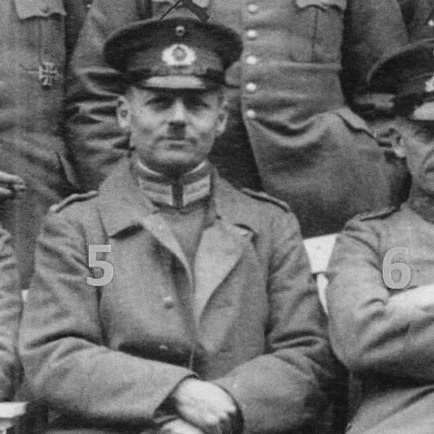
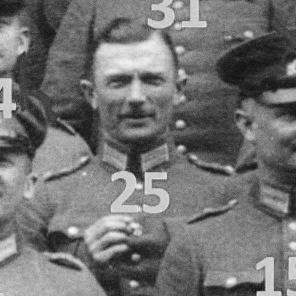
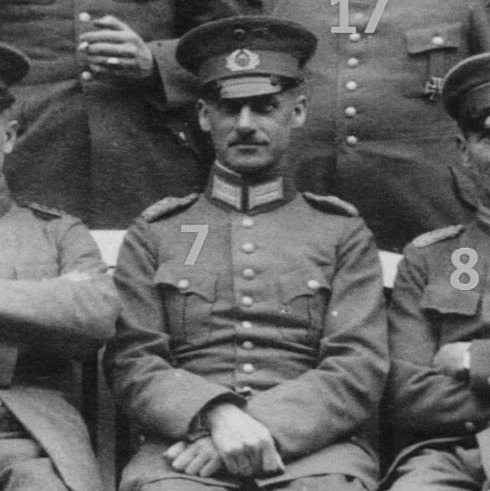
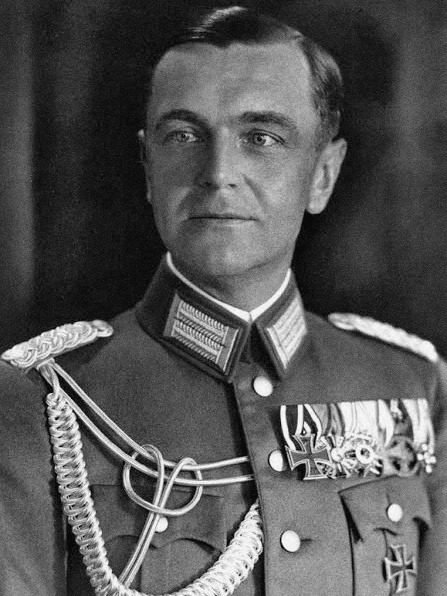
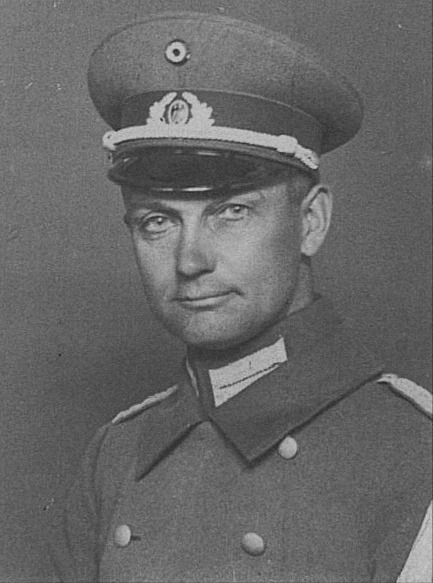
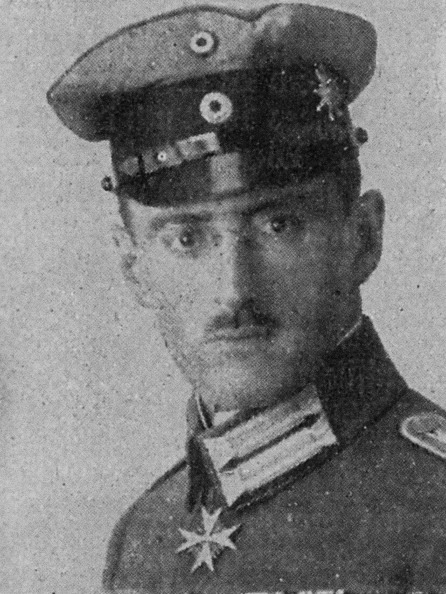
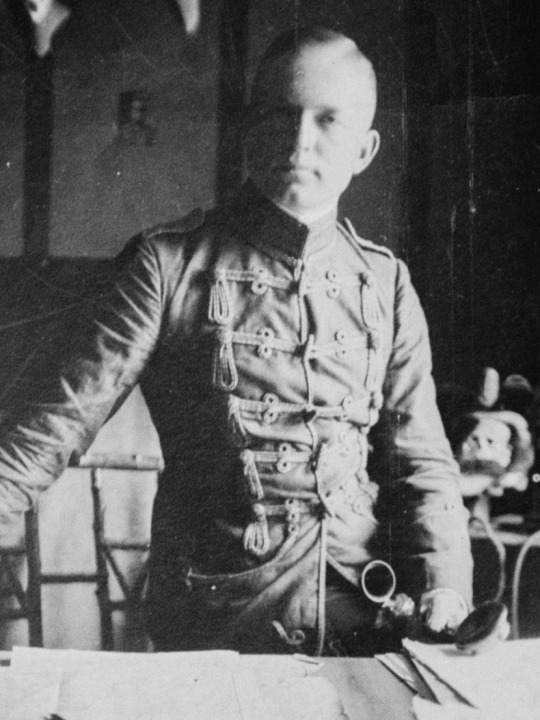
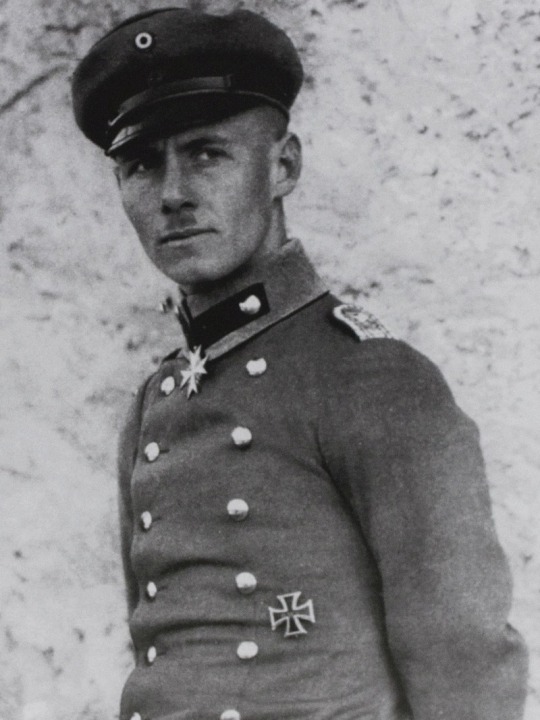
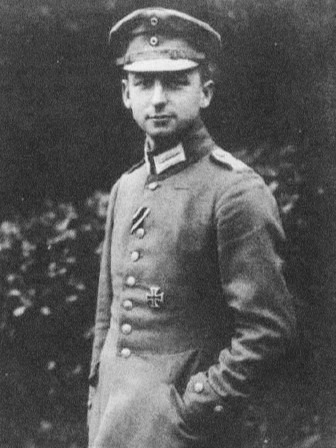
some young FM :)
#gerd von rundstedt#fedor von bock#wilhelm ritter von leeb#friedrich paulus#walter model#ewald von kleist#ferdinand schörner#erwin rommel#erich von manstein#generalfeldmarschall#heer#later on#ww1#3rd reich#photos credit to the owner#ok it's time to go to bed bye bye
35 notes
·
View notes
Text
Walter Schellenberg in Archives and Publications
Categories of MIUarchiv, click the title to view posts. German edition memoir: download
Handwriting and Photos Handwritten letter in English Photos from various sources Handwritten CV
Personnel and Identity Papers Personnel files (with a few photos) Passports (authentic & forged) Reichssportabzeichen Certifications of NSDAP, quitting the catholic church, marriage, hunting, etc.
Correspondence and Memorandum Of private and official nature.
Interrogation and Testimony sometimes in a tune of gossip interview... Kurt Lindow on Schellenberg's personality and his relationship with Heydrich & Himmler Christl Erdmann (secretary) Hugo Buchwald (chauffeur) Wener Best Hans-Hendrik Neumann (Heydrich's adjutant) etc.
In Prison Inventory of Schellenberg's luggage seized (including some papers belonged to Robert Schmied, photos and letters of an unknown woman named "Peter") Correspondence in prison, with Hanna Reitsch, Count Bernadotte, Irene's family, the two lawyers, etc.
Schellenberg’s Final Years of Life After his release from prison he reunited with Irene and the children in Iburg. His attempt to enter Switzerland via regular proceedings almost succeeded. According to his doctor Francis Lang, Coco Chanel has covered his expenses of 30000 francs. And a little investigation into his burial place.
Divorcing Kaethe Kortekamp Plaintiffs, correspondence, Kaethe's meeting with Heydrich, etc.
Irene Grosse-Schönepauk and her Family She lived in Iburg, Hannover with the children and her mother in the post-war years, in poor condition.
Schellenberg's Parents and Siblings Bernhard & Elisabeth Schellenberg's participation in espionage Ludwig Schellenberg's trouble Correspondence with old Guido Schellenberg
Dr. Schellenberg? The question remained.
As Others Recalled Wilhelm Wulff's memoir Klaus Harpprecht on Schellenberg's peculiar assertion of Heinrich Müller's defect to the Soviet Union Friedrich Paulus' Story
Conference Minutes Amt-VI and RSHA Amt Chef conferences
Schellenberg’s Adjutant & Assistants Adjutant Erhard Urbannek: Schellenberg's Adjutant in IV-E Secretaries Hans-Heinrich Gaulke: Had worked with Schellenberg since the Amt I years. Executed for violation of Paragraph 175. Last seen in RSHA files in June 1943. Werner Krueger: Sent to the front or Einsatzgruppen after boasting of being an "adjutant". Last seen in RSHA files in May 1942. Maria Schienke: Gaulke's successor. Christl Erdmann: Schienke's assistant. Personal assistant (Persönlicher Referent) Wilhelm Schmitz Assistant for liaison and reception Franz Göring
RSHA Offices Details of RSHA office buildings and guesthouses.
Other RSHA-Related Personalities
Uncategorized
For content translated into Chinese, please visit our WordPress page. 中文书摘译文等请访问Wordpress页面: https://miuarchiv.wordpress.com/
13 notes
·
View notes
Text

"Bist du müde? Ruh dich etwas aus."
head from 3R gm655
0 notes
Text
https://www.wsj.com/articles/the-lighthouse-of-stalingrad-review-truth-and-lies-after-the-battle-11670365426
Most Russians need no convincing that the Red Army’s grueling victory at Stalingrad was the most important event of World War II. Many Western historians concur that it was the turning point of the war on the Eastern Front, which means its significance can hardly be overstated. “The Battle of Stalingrad in my opinion is quite simply the most staggering feat of human endurance, sacrifice, and arms in the history of warfare,” writes British historian Iain MacGregor.
But in his carefully researched new book “The Lighthouse of Stalingrad: The Hidden Truth at the Heart of the Greatest Battle of World War II,” Mr. MacGregor points out that “the mythologizing of the struggle for Stalin’s city can sometimes distort the true history, which in itself is unambiguously heroic.” Particularly at a time when Vladimir Putin is invoking the cult of the Great Patriotic War, as World War II is called in Russia, to justify his disastrous invasion of Ukraine, Mr. MacGregor argues that it is vital to separate fact from propagandistic fiction.
The ferocious fighting for control of the city on the Volga, now known as Volgograd, lasted from early September 1942 to Feb. 2, 1943. Troop losses on both sides numbered in the hundreds of thousands; official statistics tally 64,224 civilian deaths in the fighting, with most buildings reduced to rubble. But Stalingrad, Mr. MacGregor maintains, “broke the cycle of continual German victories, thus ensuring that it was now a case of when and not if the Allies would eventually defeat the Nazis.”
Arguably, the battle for Moscow, which was even larger in terms of the number of troops involved and the scale of the casualties, had broken that cycle earlier. (Full disclosure: I made that case in “The Greatest Battle: Stalin, Hitler, and the Desperate Struggle for Moscow That Changed the Course of World War II.”) Nonetheless, Mr. MacGregor is correct in pointing out why the German drive on Moscow—which fell just short of its goal, stalling out as advance units reached the city’s outskirts—was far from a decisive win for Stalin. In fact, it highlighted many of his initial mistakes, starting with his refusal to believe that Hitler was about to break the Nazi-Soviet Pact by invading the U.S.S.R., which allowed the Wehrmacht to score the early victories that sparked panic in the capital.
By contrast, Stalingrad was a more impressive triumph, making it “the ultimate touchstone for any Russian leader,” Mr. MacGregor writes. Yet what actually happened was never enough for Soviet propagandists: they felt compelled to spin an unabashedly heroic narrative that overlooks inconvenient truths. This valuable addition to the body of work about Stalingrad goes a long way toward righting the balance between myth and reality.
Mr. MacGregor vividly describes the frantic Soviet efforts to beat back Field Marshal Friedrich Paulus’s Sixth Army as it reached the city. House-to-house, factory-to-factory fighting became the order of the day, and Gen. VasilyChuikov, the commander of the 62nd Army, quickly adopted the tactic of “hugging the enemy,” positioning his troops as close as possible to the Germans, then striking with small mobile groups.
To illustrate his point about the mix of fact and fiction, Mr. MacGregor zeroes in on one of Stalingrad’s most legendary episodes: the Red Army’s push to take control of a strategic building codenamed “The Lighthouse.” In the official version, Sgt. Yakov Pavlov led a small band of men, representing a symbolic mix of Soviet nationalities, as they charged into the house and wiped out its German occupants. Subsequently, “Pavlov’s House,” as it became known, was hailed by the 62nd Army’s newspaper as “a symbol of the heroic struggle of all defenders of Stalingrad.”
Investigating these events, Mr. MacGregor combed the records and interviewed Pavlov’s son and Chuikov’s grandson. While he does not doubt Pavlov was a fierce combatant, he discovered contradictory evidence about who really tookcommand of the lighthouse—and whether the legend of the battle comes close to matching what really happened. He concludes that “the imagined storyline was deemed more important than the actual truth.”
The official Soviet histories also bypassed the terror tactics Stalin employed against his own troops to enforce his “Not a step back!” order. The NKVD, the KGB’s predecessor, set up “blocking detachments” behind the front lines to shoot any soldiers who tried to retreat. Hitler did not spare his men either. Once his forces were clearly defeated, Paulus pleaded for Hitler’s permission to surrender. The response: “The Army is to hold its position to the last man and to the last bullet.—Adolf Hitler.”
While Mr. MacGregor focuses on setting the record straight about the Red Army, he also emphatically dismisses a popular German myth that the Wehrmacht had nothing to do with the Holocaust. He notes that by the time of the battle for Stalingrad, more than two million Jews in occupied territories had already died, with the Sixth Army and other military units serving as “willing enablers” of mass executions.
For all their similarities, Stalin and Hitler proved to be very different wartime leaders. Confronted by mounting setbacks, Hitler always blamed his generals, not admitting his own misjudgments. Dismissing Gen. Franz Halder, the chief of the general staff, he declared: “We need National Socialist ardor now, rather than professional ability, to settle matters in the East.”
Stalin demanded ideological ardor as well, but Mr. MacGregor makes a compelling case that he had begun to learn from his mistakes. He accepted some of the recommendations of his top generals, and even junior officers were allowed “a modicum of initiative in the field to make their own decisions.” All of which contributed to the victories that turned the tide.
Stalingrad was the most spectacular.
2 notes
·
View notes
Text
Ernst Jünger in Africa
Boredom and problems at school, dissatisfaction with his situation and a large pinch of youthful adventurousness, led Ernst Jünger to decide to break out of his bourgeois world and make the long-awaited dream of going to Africa a reality. Since this was not the easiest thing to do, he first decided to "escape" to France and join the Foreign Legion there, which would enable him to go to the “dark continent” and explore all its secrets. He wanted freedom and walk on paths that no other had walked before. The French Foreign Legion was something that appealed to many young men. Fighting and exploring other continents was a dream of many, and even if victories were won for a foreign country, they were happy to accept that. Since too many German sons saw this option as a possibility, advertising for the Legion within Germany was banned and attempts were made to prevent German citizens from joining.
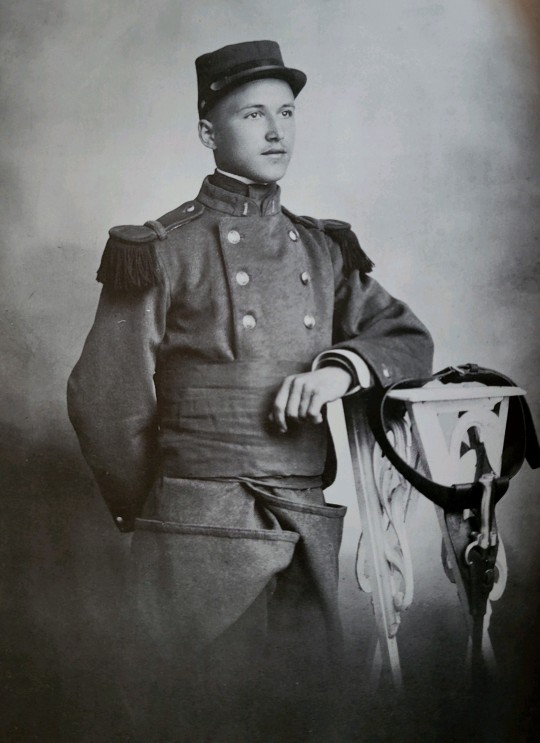
On November 3rd 1913, Jünger decided he had enough of his sheltered life, packed his bags and took a train to Verdun, France. He didn´t tell his parents, only his brother Friedrich Georg knew of his plans but he swore not to tell anyone. First thing Jünger did was step right into the local recruitment office and signed up for 5 years. He was immediately sent to Sidi-Bel-Abbès in Algiers, where he began his three-month basic training. Jünger's plan, however, was not to stay in the legion, he only wanted to use it as a springboard to advance further into the continent. His plan was to steal out of the garrison and go to Morocco.
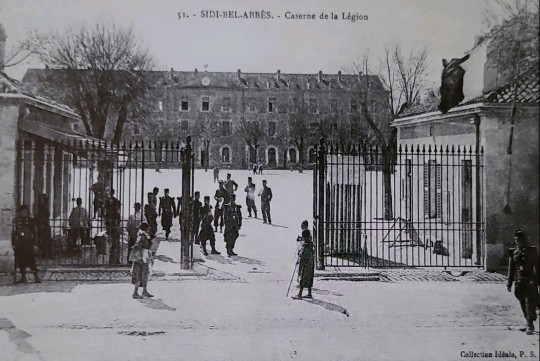
“If I remember correctly, I spent exactly three weeks in Bel-Abbès. During the first one I was a bit bored, the second one I spent quite pleasantly and the third one I spent under lock and key.” During his first week in the garrison, Jünger learned the basics of military drill. “At the end of the first week, under Paulus' tireless guidance, I had already acquired all kinds of skills that I had not actually come here to learn, such as sweeping the room, unscrewing a gun lock and turning to the right, to the left and around my own axis in a prescribed way.” Shortly afterwards, Jünger received a letter from his father, who sent him money. His father was in contact with the German Foreign Ministry and tried to force the repatriation of his underage son. In order not to lose too much time away from school, Jünger's father instructed him to at least learn French, how to shoot and to march.
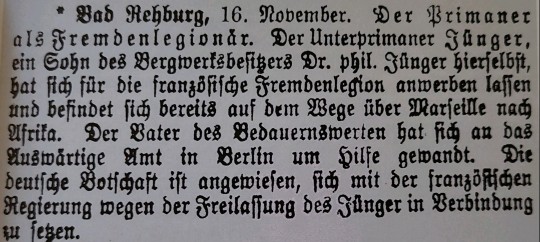
While Jünger appreciated his fathers effort to bring him home, he didn´t want to return just yet. He still held onto the dream of exploring the continent. Together with a comrade he decided now was the time to “escape” the Foreign Legion and make his way across North Africa. But this adventure ended all too soon. Not really prepared to wander the desert with little provisions while being hunted for desertion, Jünger and his friend were soon discovered. After walking a few miles, they took shelter in a barn overnight and woke up surrounded by soldiers from the garrison. They were brought back to Sidi-Bel-Abbès and punished with eight days of arrest. After serving his sentence, Jünger was informed that he would be discharged from the Foreign Legion. His father had obtained his repatriation with the help of the authorities. On December 20 he returned to Verdun. On his way back to Germany, still in his legionary uniform, he was arrested by a German gendarme who believed Jünger was trying to evade his compulsory military service. Again, the father had to intervene legally and rescue his son from the precarious situation.
Jünger later processed the whole adventure in the novel "Afrikanische Spiele".
10 notes
·
View notes
Text
The Life And Military Career Of Friedrich Paulus
The life and military career of Friedrich Paulus
The life and military career of Friedrich Paulus, a German general during World War II, is best known for his command in the Battle of Stalingrad, a turning point in the war. His actions and decisions during this critical battle have sparked debates and controversy. In this blog post, we will delve into the life and military career of Friedrich Paulus, exploring his early years, his command in…
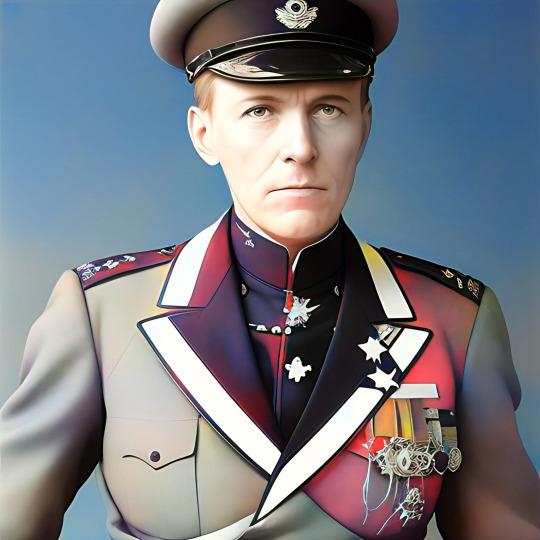
View On WordPress
3 notes
·
View notes
Note
do any famous people in history share your birthday?
uhhh, I don't know anyone..., so had to google this one:)))
Euripides
Augustus Caesar
Kublai Khan
Victoria Woodhull
Typhoid Mary
Walter Lippmann
Friedrich Paulus
Aldo Moro
It's September 23th btw! Tyyy for the ask <3333
4 notes
·
View notes
Text
On January 31, 1943, German Field Marshal Friedrich Paulus, surrendered at Stalingrad after having been surrounded for over two months. Hitler, who had promoted Paulus to Field Marshal just the day before, was reportedly enraged, having expected Paulus to commit suicide rather than surrender. After the war, Paulus would return to Soviet-occupied East Germany, where he lived the remainder of his life, ultimately dying in 1957 at the age of 67.
2 notes
·
View notes
Text

Alle haben gesündigt und erreichen nicht die Herrlichkeit Gottes und werden umsonst gerechtfertigt durch seine Gnade, durch die Erlösung, die in Christus Jesus ist. Römer 3,23.24
Aus www.gute-saat.de
Friedrich III. von Sachsen (1463-1525) trägt seinen Beinamen „der Weise“, soweit es seine Regierung betrifft, gewiss mit Recht. Er ging in die Geschichte ein als der Mann, der den Reformator Martin Luther vor seinen mächtigen Feinden beschützte. Friedrich war zu dieser Zeit (1486 bis zu seinem Tod vor 500 Jahren am 5. Mai 1525) Kurfürst von Sachsen. Er gründete die bekannte Universität von Wittenberg, wo Luther und sein kluger Freund Philipp Melanchthon lehrten. Friedrich lehnte es kurzerhand ab, als man ihn als Kompromisskandidat zwischen Franz I. von Frankreich und dem jungen Habsburger, dem späteren Karl V., für die Kaiserwürde ausersehen wollte. Es gelang ihm, sein Kurfürstentum aus allen Bündnissen und Auseinandersetzungen seiner Zeit herauszuhalten. Er gehörte zu den wenigen, die einen Krieg gegen die Bauern ablehnten.
Der kluge Regent hatte aber auch eine andere Seite: Er sammelte leidenschaftlich Reliquien, Gegenstände, die religiös verehrt werden. Seine Sammlung von 1900 Stücken galt als die drittgrößte der damaligen Zeit. Friedrich beschützte und beherbergte zwar Luther auf der Wartburg in Eisenach, während dieser das Neue Testament, den zweiten Teil der Bibel, ins Deutsche übersetzte; doch er selbst verstand die Frohe Botschaft wohl nie. Er umgab sich mit Gegenständen, denen eine rettende Wirkung zugeschrieben wurde. Wirklich weise?
Die Bibel sagt klar, dass der einzige - und so einfache - Weg zur Rettung nicht über äußere oder innere Hilfsmittel oder gute Taten führt. Gott schenkt die Rettung allein aus Glauben. So erklärt es der Apostel Paulus im Römerbrief, und Luther wurde nicht müde, es so zu verkündigen. Dieser Weg steht bis heute jedem offen. Gott schenkt Errettung aus seiner freien Gnade für jeden, der an seinen Sohn Jesus Christus glaubt!
Aus www.gute-saat.de
0 notes
